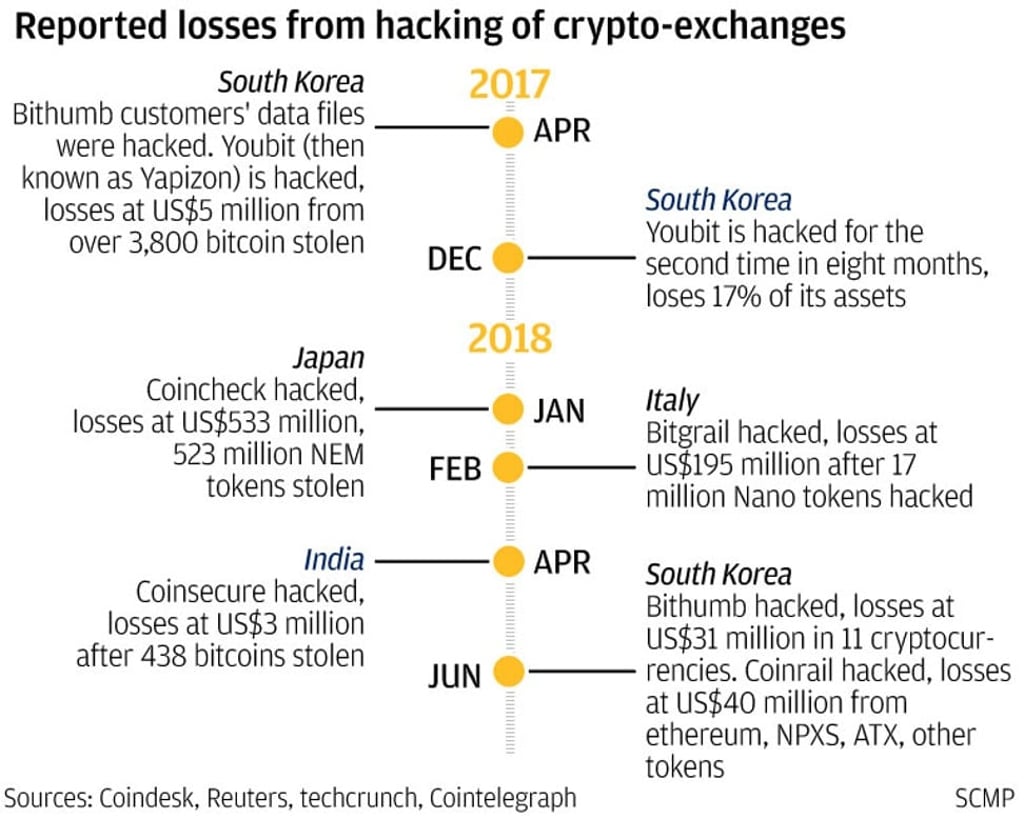How much of a bitcoin’s value can Hong Kong investors claim when the city’s oldest cryptocurrency exchange goes bust?
- Hong Kong cryptocurrency exchange Gatecoin’s wind-up highlights gloomy outlook for investors in recovering their cryptocurrency assets
- Recovery of up to US$1.05 billion of losses globally hinges on proof of legal ownership

Gatecoin, one of Hong Kong’s first cryptocurrency exchanges, was ordered to wind up last month, ending six years of a tumultuous business that included losing US$21.4 million in clients’ assets during a May 2016 hacking theft, and having its accounts shut by nine of the city’s banks.
Given the nature of how cryptocurrencies are held at cryptocurrency-exchanges, plus the fact that virtual asset trading today remains unregulated, aggrieved investors – Hong Kong residents make up 40 per cent of Gatecoin’s clients – would face a long, challenging liquidation process with a dim recovery outcome, insolvency and legal experts said.
The way most cryptocurrency-exchanges hold clients’ assets under their own digital signature – which identifies the exchange as the owner of the cryptocurrency assets rather than the clients – means that by definition, all cryptocurrency assets are commingled, or not segregated, said Peter Greaves, a partner at PwC’s China and Hong Kong restructuring and insolvency team.
“Even if these assets are stored in a cold wallet, once it is registered on the blockchain under the exchange’s name as it holds these tokens on behalf of its clients, in a liquidation scenario these assets still belong to the cryptocurrency-exchange,” said Greaves. Cold wallet is a cryptocurrency storage device that allows for the keeping of digital asset offline.
Some have argued that this provides additional safety to cryptocurrency asset owners compared to hot wallet, which is connected online and thus, more exposed to cybersecurity risks.
